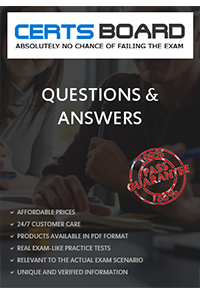Nearing the end of a coaching session, the client has a very clear idea of the plan that he/she would like to implement. To help the client identify if they have all the support that they need in moving forward, the worst response is:
After establishing a goal which is likely to be the best step for the client and coach to lake next?
After making initial progress between sessions, your client is now at a point where they are stuck and feel like they are moving backwards. The worst response is:
Your client is a very creative person who thinks in pictures and learns visually. You, as a coach, are not naturally visual. In order to encourage and facilitate your client’s learning, the best response is:
After your client has shared this pattern and has expressed a desire to change and come up with a plan to implement this change, the worst response is:
Which is typically specified as a responsibility of the coach in a coaching agreement?
Your client is a very creative person who thinks in pictures and learns visually. You, as a coach, are not naturally visual. In order to encourage and facilitate your client’s learning, the worst response is:
A client tells their coach that they are struggling to sleep and are having nightmares about a past event they experienced Which is the best action for the coach to take?
After your client has shared this pattern and has expressed a desire to change and come up with a plan to implement this change, the best response is:


